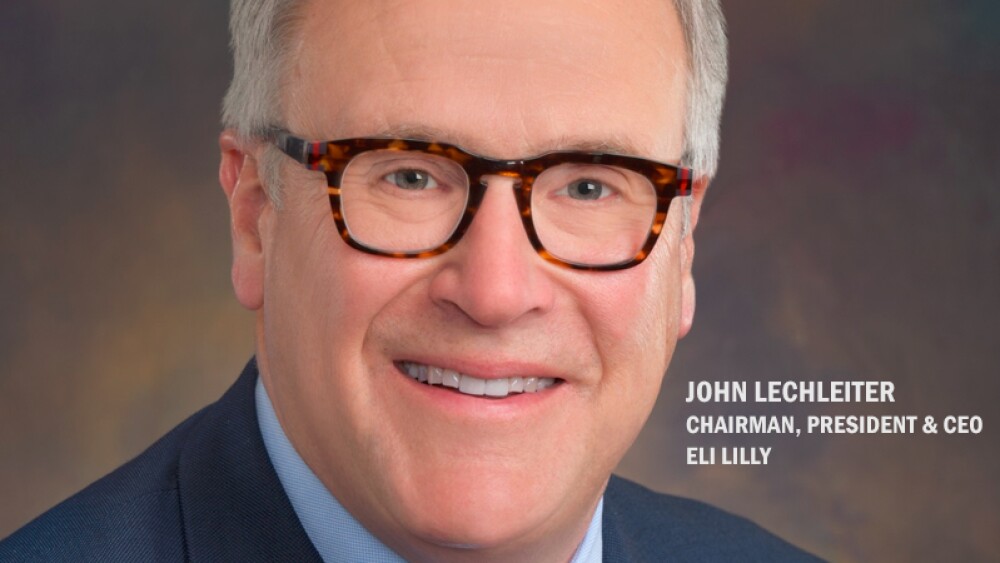October 13, 2016
By Alex Keown, BioSpace.com Breaking News Staff
INDIANAPOLIS – When it comes to treating Alzheimer’s disease, many companies have reached for the proverbial brass ring, only to fall short. For Eli Lilly & Co. , no stranger to failing to find that elusive Alzheimer’s treatment, the company hopes the third time is the charm for its drug candidate, solanezumab.
Eli Lilly is in the midst of testing solanezumab on more than 2,000 patients with early Alzheimer’s disease in a late-stage trial, Stat News reported this morning. But it’s a place the company has been before, the last time in 2012 when solanezumab failed to meet endpoints. However, with a new focus on milder-forms of Alzheimer’s and using a “delayed start” method, Lilly is positioning itself to take the lead in Alzheimer’s treatment. In July, the company released interim data suggesting solanezumab works best when used on patients with a milder form of Alzheimer’s “earlier in the disease compared to patients who began treatment at a later point.” If the drug delivers as Lilly execs and countless patients and families hope, this could be the game-changing drug in treating the memory-stealing disease.
Many companies have sought to develop drugs that go beyond treating the symptoms of Alzheimer’s, but can actually prevent onset of the disease. One popular target is amyloid plaque in the brain. Lilly’s injectable solanezumab, a monoclonal antibody, binds to forms of amyloid-beta after it is produced, allowing it to be cleared before it clumps together to form beta-amyloid plaques. While not a cure for Alzheimer’s provide patients with greater cognitive abilities—about a 35 percent improvement, Stat said. However, Stat pointed out that the treatment would likely only help about one-third of Alzheimer’s patients with a milder form of the disease. In July, Lilly presented data suggesting the effect of solanezumab was best when used with patients who had a mild form of the disease.
Alzheimer’s disease, a type of dementia, affects 15 million people worldwide, a number that is expected to grow to 75 million by 2030 due, in part, to the lack of effective treatments. In total, there are about 50 million people suffering from some form of dementia worldwide. There are currently no drugs that target the cause of Alzheimer’s, the most common form of dementia. There are several drugs on the market that help manage Alzheimer’s, but none treat the primary cause, including Eisai Co. ’s Aracept.
If solanezumab proves to be better than placebo in the late-stage trial, the drug could become a block buster for Eli Lilly, bringing in up to $3 billion annually. Not only that, but the drug would also verify what researchers have thought about amyloid plaque and bolster the efforts of other companies developing amyloid-targeting treatments, such as Biogen and its experimental drug, aducanumab, and Roche .
If the drug achieves results that are statistically better than placebo, Lilly will likely push to file the drug for U.S. Food and Drug Administration approval, which, under best case scenario, could be sometime in 2017. Even if results are somewhat muddled, Stat News speculated that Lilly would likely still file for FDA approval, hoping the regulatory agency would give it a nod, but with a “conditional OK.”
Other companies are targeting different causes of the disease. New York-based Anavex Life Sciences is focused on oxidation and nitration in the brain as one of the primary causes. Last year, Amgen and Novartis struck a collaborative deal to co-develop amyloid plaque treatments for Alzheimer’s disease. The agreement will combine each company’s BACE (beta-site APP-cleaving enzyme-1) programs that target amyloid plaque buildup in hopes of preventing Alzheimer’s.





